- Home
- Fay Weldon
Chalcot Crescent Page 3
Chalcot Crescent Read online
Page 3
I knew something momentous had happened when Venetia was conceived if only because the outside world faded away and stillness fell: Derek and I had entered into a slow-motion existence. This hiatus, this pause in actuality, had nothing to do with love, though I assumed at the time it had, being young and romantic. But I have felt the stillness a few times since. I believe it to be when your life veers off from its expected path, like a car slowing down before taking a sharp corner: there is a kind of pause while the parallel universes sort themselves out. I felt it again today when the bang on the door first came and I decided I would not answer it, but hide. I was glad to feel it after so long. I was still in the world of possible outcomes, alternative universes, not the one I have been stuck in for so long, until now, upon the stair.
Pregnant with Venetia, a fact I did not know until Derek was well dead and there was no point in telling Fay, who was also pregnant by him, I refrained from having an abortion or considering adoption. I had a sense that what was meant to be was meant to be and fate was on my side. I had a degree, I had good friends, I was passionately in love with Venetia, unborn and born, and was never very sensitive to what the world thought of me. I attributed the pregnancy to an unknown passer-by of wealth, good looks and charm, which indeed was true of Derek. So much one must do for one’s illegitimate child – leave them with an image of an admirable if absent father.
Then came odd jobs and hard times, with my poor mother Margaret helping out – how desperately she had hoped for a life of her own, free from children, but we would not let her – until Fay got me a job as a copywriter. Fay, still unmarried but with lovers aplenty, rose and rose unstoppable – and without, I may say, scruple, in the advertising industry. She could afford to be generous. And soon I too was earning well: I was even better than she was at the persuasive game. She, childless, remained a quasi-man inside the industry. I had not married – children were not seen as the items of value they are now: no man wanted a stepchild if he could help it – but I had Venetia, and she turned out to be an advantage, not a handicap. In those days it was rare for women to rise to the heights of the advertising industry, but I could look at the suited men round the boardroom table and say to them softly, ‘I am a woman, a mother, I understand what women want,’ and they would believe me, and trust me, and I was right, and more, I had a way with words on the page. And I got them (and kept them) good clients.
Also, as I was an unmarried mother, and therefore a bad girl, the boardroom men had little hesitation in approaching me for sex, and I was happy to oblige at a time when blow-jobs were not yet common currency. To me they seemed a simple, cheerful and kindly act towards needy married men. ‘Nice’ wives seemed to be mean with sex: the thought of the blow-job was peculiar and strange to the decent women of the time. Procreation was the point of marriage, not pleasure. But I will not dwell on all that. It is a long time ago, and we shed our skins every seven years. On marrying Karl I quickly had another baby, Polly, a half-sister for Venetia, and turned into the contented wife and mother I always had the potential to be, had not my envy of Fay propelled me into other ways of life.
It was when Venetia was seven that the all-forgiving Fay took me to a party where I met her then boyfriend Karl Prideaux, artist, musician, charmer and antique dealer, and stole him right from under her nose. For once it was not because I wanted something of Fay’s – not that she was ever to believe it – I just wanted Karl, on first sight, as he wanted me. Destined, foretold, all that.
Stealing Karl
I was a different person then. I look at that time from afar with a sense of awe and marvel. I am no longer me: my skin has changed too often, five times and more if you allow ten years for a complete change. I am the other Frances back then, going with her big sister Fay to a party in Hampstead, where the artists and writers gather. Fay is accustomed to such excitements, Frances not so. Were the nights different then? It feels like it: they carried more mystery, more sense of future. But perhaps that is just youth. The moon is full, it is the days before yellow lines on the road, and anyone can park anywhere, and no-one had yet stood upon the moon and explained it was a lump of rock, with film to prove it and depress everyone, not a gift to lovers from heaven, or made of green cheese either. These days Frances, looking at the moon, senses entropy, and, listening out, can only dimly hear the music of the spheres. But when she was walking alongside her big sister, their high heels clicking in unison, she a couple of inches taller and slimmer of waist, such music rang sweetly in her ears, and the very air seemed scented with promise of excitements to come.
‘You haven’t met Karl, have you,’ says Fay. ‘I met him at the launderette in Regent’s Park Road. My washing machine had broken down.’
‘So now of course you use his,’ remarks Frances.
‘He doesn’t believe in domestic machinery,’ says Fay. ‘So now I take his washing down there as well.’
‘What does he believe in?’ asks Frances.
‘Sex,’ says Fay, and for some reason this irritates Frances very much. Her life is earnest, Fay’s is all frivolity.
Fay lives in a house in Chalcot Square round the corner from Chalcot Crescent. She bought it for £6,000 cash. Women can’t get mortgages from banks, but they can borrow money from friends and lovers and pay it back. Chalcot Square was run-down, the green patch in front of the houses grey, damp and littered with old prams and bits of dismantled bicycles. Rachman, the famous slum landlord of the day, frightened elderly tenants out by painting the evil eye on the front doors and employing actors to prance around as evil voodoo shamans. But she is not elderly, she is young, and not easily frightened, and has a plan anyway to move in with Karl around the corner in the Crescent, where it is lighter, and airier, and far more pleasant, and the grass of Primrose Hill is thick and green, and you can hear the lions roar in London Zoo just down the road.
This happens in 1961 when Frances is twenty-seven, and lives in a walk-up (seven flights, ninety stairs) with her mother and little Venetia. Her mother Margaret stays in with Venetia when Frances goes out to work in her advertising agency. Margaret hates it when Frances goes out to parties in the evening and she is left alone, chafing from the burden of how her daughter obliges her to live, feeling excluded. Frances feels her sister Fay should take a little of the burden of entertaining Margaret off her shoulders – Margaret declines to make friends or have a social life of her own: she was born in 1909, after all, and feels company means family: that friends should drop in their visiting cards, not themselves, and remain at a formal distance. Margaret never much liked any of her children bringing friends home, and as for lovers, seriously no.
Fay earns double what Frances does. Sometimes she feels bad about Frances’ hard life, but then Frances has only herself to blame. And Frances does not have to bear the burden of guilt Fay does: she did not have an abortion. Fay rather envies her that. Abortion is illegal and you go to prison for having one if you are found out, but the police aren’t looking very hard. They would have their work cut out to get round everyone. Both Fay and Frances are unusual in that they have well-paid jobs and are unmarried in an age when few women can support themselves, or want to.
‘I look forward to meeting him,’ says Frances.
‘You might not get on with each other very well,’ says Fay.
‘Why not?’
‘He has an artistic sensibility,’ says Fay.
‘You mean I haven’t?’ demands Frances.
‘The new Chinese rug you’re so proud of,’ says Fay, ‘is hardly the last word in aesthetic chic.’
‘What’s the matter with it?’ demanded Frances.
‘It’s nylon, it’s machine-made and mass-produced,’ said Fay.
Frances was proud of the rug, the first household item she had ever bought for her home after years of living in cheap flats. It suggested to her that things were looking up: that there just might be a future in which possessions and pleasures were freely available. It was circular, thick, dusky pink with
a giant dragon woven into it. She loved it. It was luxurious: she had achieved it by her own work and her own efforts. It was her own taste, not her mother’s. She had overridden Margaret to buy it. Margaret liked only what was sensible and virtuous. Frances was proud of it. Venetia liked to sit in the middle of it and hum nursery rhymes. Frances had shown the carpet off to people, and thought they looked at her rather curiously. Were they all laughing at her?
She said nothing but resolved she would steal Karl from Fay. She would have him and make his artistic sensibilities her own. She would move in, escape her mother, have this man’s babies, make him buy a washing machine and not let Fay lord it over her any more, by virtue of her two years’ seniority and childlessness. All sight unseen. But some passing deity – of the kind who existed in the magic London of the past – was passing by in the balmy, enchanted air of that night, heard her unspoken mind and granted her wish.
The party was at Studio House, 1 Hampstead Hill Gardens, a vast house now divided into ten luxury apartments, but then in single occupancy, owned by Professor William Empson, author of the Seven Types of Ambiguity, a book that many admired but few understood, and his fiercely beautiful wife Hetta, who had begun life on the South African veldt, where her father laid about her with a sjambok the better to keep her in order, but failed. The Empsons supervised the wilder shores of literary and artistic life in the sixties. Wine flowed, bread and cheese were devoured by the struggling, hungry and talented: Elias Canetti of Crowds and Power was there, and the young Bernice Rubens and her husband Rudy Nassauer, and Iris Murdoch – wearing slippers even then – and John Bayley. Mira Hamermesh the film-maker, and Nic Roeg and Karel Reisz, and the young Roger Graef, and Jonathan Miller and Angela Carter were all there: but not Ted Hughes and Sylvia Plath, because they were down in Devon, around the time Assia Wevill and her husband David were visiting for the weekend. Sylvia asked Assia to peel the potatoes and Assia felt herself misused and treated like the maid and went down the garden path to where Ted was, and flirted with him and kissed him just to be revenged on Sylvia, and see where that led, two dead women and one dead child later.
In just that same spirit did Frances go up to Karl at the Empson party, after having talked briefly to William himself, who remarked that 1961 was a palindrome and like a pencil; sharpened at both ends, and, when she asked him why he was wearing two ties, replied to her that he couldn’t find his belt. All that energy and promise, there and then not there like a puff of smoke in the cosmos.
And then she asked around and found out that Karl Prideaux was a talented painter, that his wife had gone mad and was murderous and locked up in a loony bin, and a better painter than he was, that he’d been left money and was in psychoanalysis, that he hated his mother, that he’d come into money and gave drunken parties in Chalcot Crescent down the hill, that since his wife left – she had taken to sleeping in a dustbin before they came to take her away – he slept with anyone that moved, what was that pretty fat girl doing at this party – wasn’t she in advertising –?
‘That’s my sister,’ said Frances –
‘And how about you? It’s a lovely night. Would you like to come outside into the moonlight where it’s a bit quieter –’
‘No thanks.’
She can see where Karl stands with a group of friends, where he seems to be the natural centre of attraction, his arm around Fay, who is looking singularly pleased with herself. She catches his eye. He is not tall, but stocky and muscular, Picasso-like.
‘That’s my sister,’ says Fay. ‘She’s the one with the illegitimate child who lives with my mother. She’s very brave.’
Karl looks at Frances properly. She looks at him. They know each other. The powers from on high have arranged the whole thing, including her wrong, mean motive, which is now irrelevant.
‘I have a child too,’ he says. She hadn’t known that. And then to Fay – ‘No child is illegitimate. It has as much right in the world as anyone else.’ It’s a rebuke. She flushes.
And within two minutes Karl and Frances were out in the garden where it was quieter, underneath the fairy lights, and he was asking why she looked so unhappy, and she was telling him about the married man she was seeing, about the ‘Cry Me a River’ syndrome, and then before they knew it they were on the ground beneath the trees and he said, as men did in those days, ‘I’ll only put it in a little way,’ but of course he didn’t. She thought he was like the pulse of the universe, its heartbeat – that, then this, that, then this, that, then this – the steady rhythm of life itself and the sudden understanding kept her with him for years, though it did not prevent her, from time to time, when upset or jealous or simply bored, for looking for the same quality elsewhere.
When they went back inside to fetch her coat, Fay was standing there, blonde curls askew, make-up streaming down her face. She looked awful when she cried. Frances felt bad about it but not for long.
Then they were walking together down the hill towards Chalcot Crescent and he said, ‘I feel bad about your sister. One shouldn’t go to a party with one girl and leave it with another,’ and Frances said probably not but it was too late now. Within a week they were living together.
Studio House now stands empty, dilapidated and with Virginia creeper pushing out its window frames, its garden a mixture of rubble and weeds. It held its own until 2011, when an epidemic of unknown origin and a 60 per cent fatality rate spread out from the Royal Free Hospital and crept up as far as St Stephen’s on Rosslyn Hill, and down the road as far as the Vale of Health, before seeming to burn itself out – there were too few trained pathologists to find a vaccine, let alone a cure – but they reckoned it was carried by rats on a house-to-house basis. By then most of Hampstead had vacated the premises, but the rats hadn’t, so very few inhabitants returned.
Becoming Amos’ Grandmother
‘Making love to you is like making love to the sea,’ Karl said, after the second day.
‘And with Fay?’ I asked.
‘To the village pond,’ he said. What chance did she have? I didn’t tell her he said that. But I treasured it for ever.
For once she pleaded with me. ‘But I love him, Frances,’ she bleated. I took no notice. She was too docile for him, anyway: he would have made her life hell. He needed someone like me to fight him back.
So I moved with Venetia into Karl’s house and have stayed here ever since. From No. 3 Chalcot Crescent I have lived through five decades of world history: I have been living witness to the birth and death of feminism, the terror and denial of the dangers of nuclear war, the rise and fall of terrorism, the fall of first communism, then capitalism – which once we thought would last for ever – the death and rebirth of nationalism, and I survived. Now finally world history reaches my doorstep and comes the knock on the door and the bailiffs are here.
These stairs I sit upon – the carpets have been renewed from time to time, upgraded as my books sold and my income grew, from worn brown hessian to dark-patterned Axminster to avocado nylon mix to white pure wool – now feel rather thin and grubby. I cannot afford to have them professionally cleaned. Nowadays I use dustpan and brush, as I did at the beginning. (It is almost impossible to find vacuum cleaner bags in the shops: whether a genuine shortage or a government ploy to stop us using electricity, who is to say? We are all conspiracy theorists now.) Wealth changed to poverty with the passage of time. Agents rooked me, and accountants cheated me: I was never as clever as I thought. Fashions in writers change. I believed I was rich long after I ceased to be so. Another Hollywood film, the next West End musical, that I always believed were around the corner to rescue me and mine never materialized.
As for Fay, she recovered from her heartbreak soon enough, and went to be writer in residence in ANU in Canberra and there married a professor of anthropology. She writes cookbooks, which do well enough. My mother Margaret eventually joined her in that town, as did my elder sister Jane and her two boys. Jane writes poetry, and her work is well received. It is mythical
stuff; I don’t understand it. Jane once complained I did not have a poetic bone in my body.
‘At least I write to the edges of the page, and get paid for my pains, which is more than you do,’ I said sharply, and she looked at me with her cool judging eyes and dismissed me as frivolous.
So now I have Australian relatives but we are not often in touch. Shadows of various resentments remain. My father died in New Zealand, suddenly, in 1949. I scarcely remember him, and blame my mother for that. But mostly I am conscious of Fay blaming me for changing the path of her life so drastically. Vibes drift over from the Antipodes.
And it’s true when Karl and I were going through hard times – we would have the most tremendous rows – he would say, ‘I should never have left your sister. I must have been mad to go off with you,’ and I would say, ‘I should have let Fay keep you, fat cow that she was,’ and he would say, ‘You are so bony it hurts,’ and it would all end in bed, and we would forget until next time. Sometimes I wonder what kind of children Fay and Karl would have made together, if I had not intervened. So many ‘what ifs’, so few answered.
Eventually Karl left me and the children for a rural life and another woman and I bought him out of the house. I say that flatly but it almost killed me. I have five grandchildren. Venetia was to become an artist and have three boys, Amos – following my example, as she is quick to point out, out of wedlock – and Ethan and Mervyn within it, by Victor, then a scientist of integrity and passion, if a trifle Aspergery. Polly, a staunch feminist, took on board as stepdaughters Steffie and Rosie, children of her partner Corey, a rugger-playing lad from Samoa: and I regard these two girls, both now at art school, as grandchildren though not of my genetic descent. So much any decent woman must do, in these days of extended families.

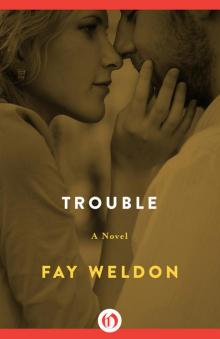 Trouble
Trouble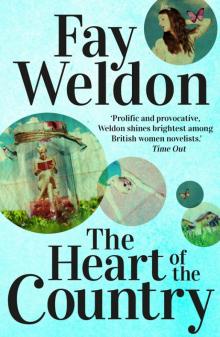 The Heart of the Country
The Heart of the Country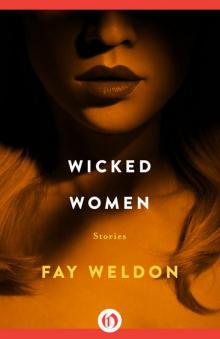 Wicked Women
Wicked Women Mischief
Mischief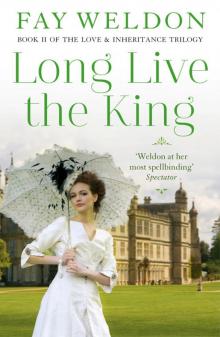 Long Live the King
Long Live the King Remember Me
Remember Me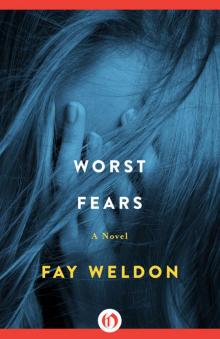 Worst Fears
Worst Fears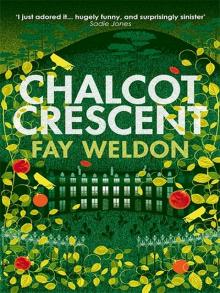 Chalcot Crescent
Chalcot Crescent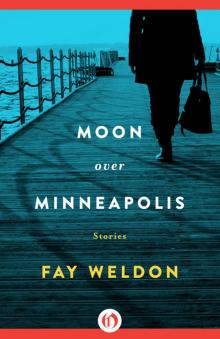 Moon Over Minneapolis
Moon Over Minneapolis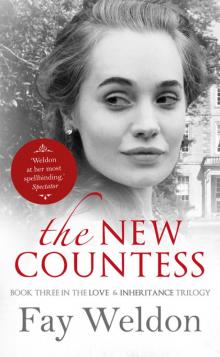 The New Countess
The New Countess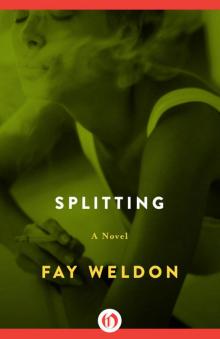 Splitting
Splitting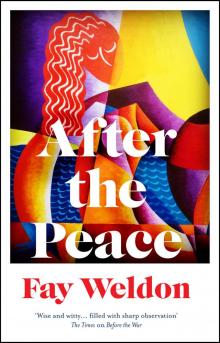 After the Peace
After the Peace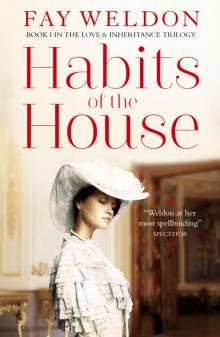 Habits of the House
Habits of the House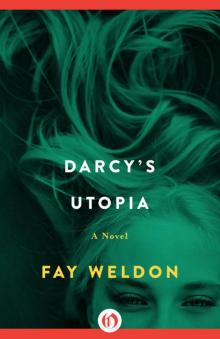 Darcy's Utopia
Darcy's Utopia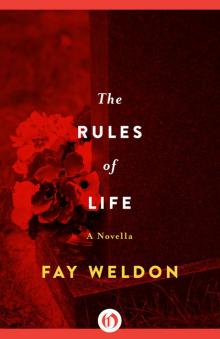 The Rules of Life
The Rules of Life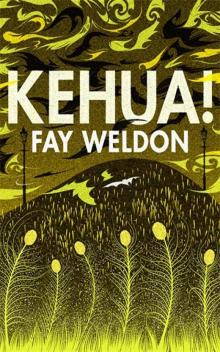 Kehua!
Kehua! Before the War
Before the War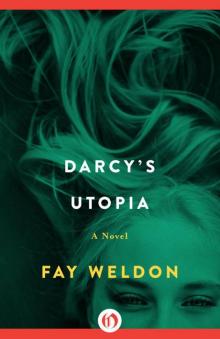 Darcy's Utopia: A Novel
Darcy's Utopia: A Novel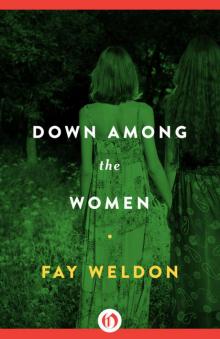 Down Among the Women
Down Among the Women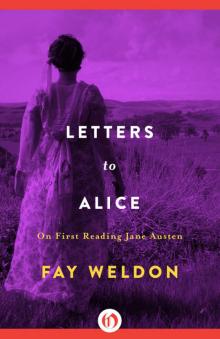 Letters to Alice
Letters to Alice 3 Great Historical Novels
3 Great Historical Novels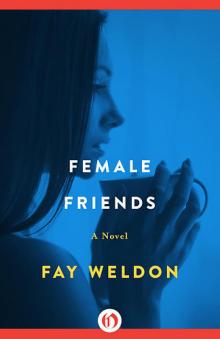 Female Friends
Female Friends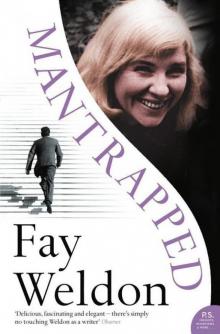 Mantrapped
Mantrapped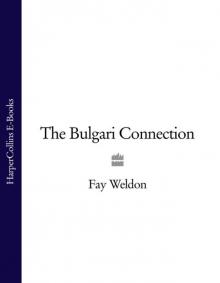 The Bulgari Connection
The Bulgari Connection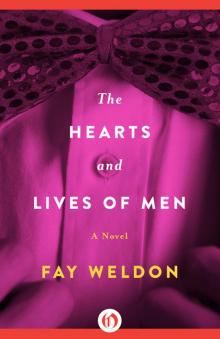 The Hearts and Lives of Men
The Hearts and Lives of Men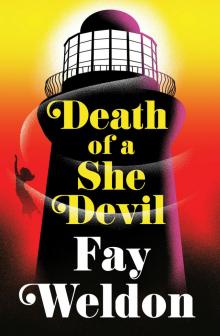 Death of a She Devil
Death of a She Devil